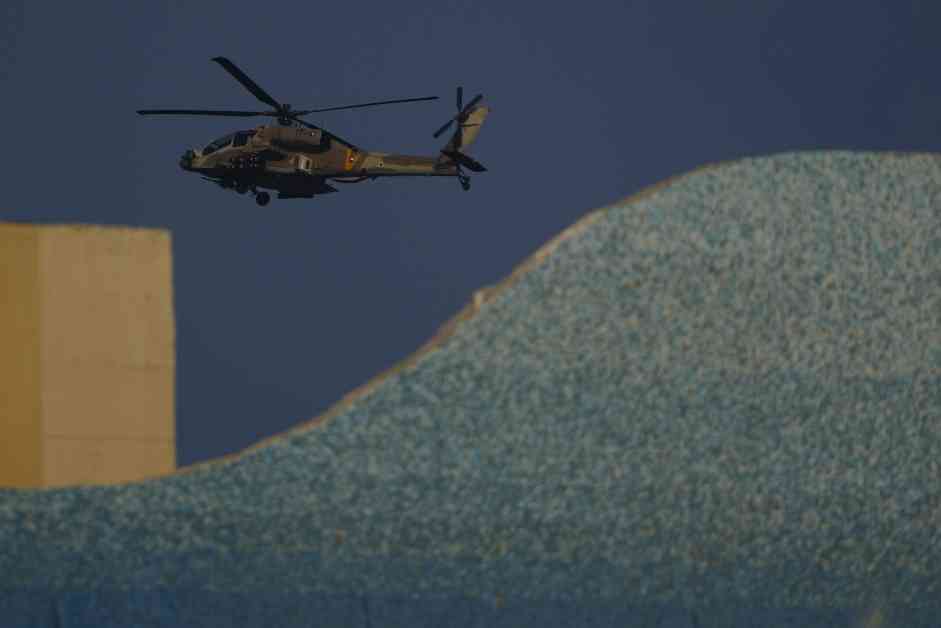Israel’s Strategic Offensive Measures in the Middle East Conflict
The Israeli Air Force’s recent preemptive attack on Hezbollah’s missile and drone launchers in southern Lebanon has stirred up debates over whether it was an offensive or defensive move. Some critics view it as an escalation of tensions in the region, questioning the use of American weapons in the attack. Senator Sanders expressed his reservations, stating that he believes providing support to Israel’s right-wing government may not be in the best interest of the United States. On the other hand, Vice President Harris emphasized the importance of Israel’s right to defend itself while also hinting at the possibility of withholding offensive arms if Israel is perceived as an aggressor.
In the realm of international politics, the dynamics of offense and defense can often blur, especially in the context of the Middle East conflict. While Israel has a longstanding policy of self-defense, its military actions sometimes take on a proactive, offensive nature to safeguard its citizens against potential threats. This strategic approach is rooted in historical events, such as the successful preemptive strike against the Egyptian Air Force in 1967, which played a crucial role in averting a genocidal war planned by Israel’s enemies. The recent preemptive strike on Hezbollah’s launchers underscores Israel’s commitment to preempting potential threats before they materialize.
The timing of Israel’s recent airstrike on Hezbollah’s missile and drone launchers was critical, as Israeli and American intelligence had identified an imminent attack being prepared by the militant group. The strike, carried out by American-made fighter jets, targeted Hezbollah’s assets in southern Lebanon, aiming to disrupt its plans to launch an attack on Israeli soil. The preventive nature of the strike was evident in its objective of neutralizing the threat before it could materialize, thereby averting a potential region-wide conflict.
Hezbollah’s retaliatory actions following the Israeli airstrike further underscore the delicate balance of power in the region. The militant group’s attacks on northern Israel, including the targeting of military and civilian assets, highlight the persistent threat posed by non-state actors in the Middle East conflict. Despite Hezbollah’s claims of success in its retaliatory actions, Israel’s proactive stance in preempting threats has proven effective in mitigating the impact of such attacks on its territory.
The strategic implications of Israel’s offensive measures extend beyond immediate military engagements to broader regional dynamics. The coordination between Israel and the United States in preemptive actions against Hezbollah reflects a shared commitment to countering threats in the region. The involvement of key military officials, such as Secretary Austin and General Brown, underscores the strategic importance of preemptive actions in maintaining regional stability and deterring potential adversaries from escalating conflict.
As Israel navigates the complex landscape of the Middle East conflict, the proactive nature of its offensive measures serves as a strategic deterrent against regional adversaries. By preempting threats and disrupting hostile activities, Israel aims to safeguard its citizens and prevent the escalation of conflicts that could have far-reaching consequences. The recent airstrikes on Hezbollah’s assets exemplify Israel’s proactive approach to addressing security challenges and maintaining a strong defensive posture in the face of evolving threats.
In conclusion, Israel’s strategic offensive measures in the Middle East conflict reflect a nuanced approach to safeguarding its national security interests and countering threats from hostile actors. By adopting a proactive stance and preemptively addressing potential threats, Israel aims to prevent conflicts and maintain stability in the region. The coordination with key allies, such as the United States, underscores the strategic importance of collective security efforts in addressing complex regional challenges. Israel’s offensive measures serve as a potent deterrent against adversaries and showcase its commitment to protecting its citizens and preserving peace in the region.


